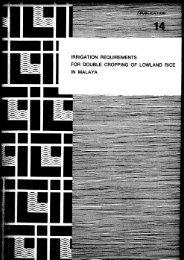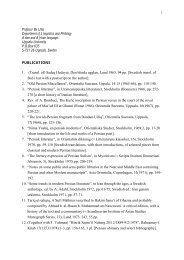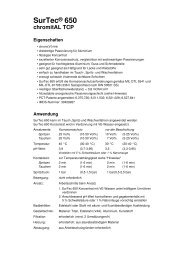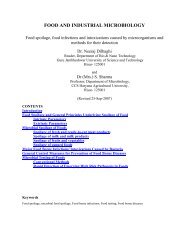On the Future of Indigenous Traditions - Munin
On the Future of Indigenous Traditions - Munin
On the Future of Indigenous Traditions - Munin
You also want an ePaper? Increase the reach of your titles
YUMPU automatically turns print PDFs into web optimized ePapers that Google loves.
<strong>the</strong> state mechanism and its process <strong>the</strong>re is <strong>the</strong> question <strong>of</strong> how <strong>the</strong> document was<br />
obtained, and if obtaining <strong>of</strong> <strong>the</strong> documents was carried out in fairness. The cross<br />
verification <strong>of</strong> <strong>the</strong> documents could be done by going to <strong>the</strong> original source itself,<br />
which is not always easy due to bureaucratic formalities and complications.<br />
Moreover, it is not in <strong>the</strong> domain <strong>of</strong> <strong>the</strong> Adivasis so <strong>the</strong> cooperation is not always<br />
guaranteed. The Manki gave his decision on <strong>the</strong> basis <strong>of</strong> documents produced by Kui<br />
with her appeal. The speculation here arises when Bodra argues that <strong>the</strong> documents<br />
produced by Kui are forged. This challenge has not been taken up in <strong>the</strong> second case<br />
as <strong>of</strong> now in <strong>the</strong> Manki’s court.<br />
To conclude on <strong>the</strong> analysis <strong>of</strong> <strong>the</strong> cases, we first look at <strong>the</strong> merits and weaknesses <strong>of</strong><br />
<strong>the</strong> whole system closely. We find <strong>the</strong> strengths <strong>of</strong> <strong>the</strong> Adivasis governing <strong>the</strong>mselves<br />
within <strong>the</strong>ir own system. However, as a weakness, <strong>the</strong>re is a newer problem. If we<br />
look closely into its functioning, we can see what happens when witnesses don’t take<br />
sides, as in both <strong>the</strong> cases <strong>the</strong>y have not lied, but ra<strong>the</strong>r supplement useful information<br />
as in <strong>the</strong> case <strong>of</strong> Laksmi. In <strong>the</strong> case <strong>of</strong> Kui, witnesses from both parties do not testify<br />
legal document “obtained” which is <strong>the</strong> only pro<strong>of</strong>, lest <strong>the</strong>y be proven to have been<br />
falsely forged. The Manki would have to take it as a challenge.<br />
<strong>On</strong> <strong>the</strong> whole <strong>the</strong>re is <strong>the</strong> issue <strong>of</strong> gender and equity that arises here. Since <strong>the</strong><br />
Adivasis community <strong>of</strong> Jharkhand is based on <strong>the</strong> patriarchal ownership <strong>of</strong> property,<br />
<strong>the</strong> same is passed on to <strong>the</strong> sons, in which <strong>the</strong> eldest son takes a bigger proportion<br />
than <strong>the</strong> younger ones. 141 It is not only <strong>the</strong> issue <strong>of</strong> equity, but also gender equality not<br />
being <strong>the</strong> same, within <strong>the</strong> practice <strong>of</strong> <strong>the</strong> customary law which raises many question<br />
today. Here it is important to answer why this is so. It is because <strong>of</strong> <strong>the</strong> centrality <strong>of</strong><br />
<strong>the</strong> community where <strong>the</strong> land may remain within <strong>the</strong> community, i.e. if an Adivasi<br />
woman marries to a non-Adivasi she has no right over her parent’s property –<br />
especially <strong>the</strong> customarily owned land. This is not always <strong>the</strong> same for Adivasi men.<br />
However, to illustrate <strong>the</strong> centrality <strong>of</strong> community and what belongs to <strong>the</strong><br />
community, <strong>the</strong> entire matter could be seen <strong>the</strong> o<strong>the</strong>r way around. It is in <strong>the</strong> case <strong>of</strong><br />
<strong>the</strong> Khasi Adivasi groups in Meghalaya, a state in <strong>the</strong> nor<strong>the</strong>ast part <strong>of</strong> India. Among<br />
<strong>the</strong> Khasis <strong>the</strong> youngest daughter <strong>of</strong> <strong>the</strong> family becomes <strong>the</strong> owner <strong>of</strong> her ancestral<br />
141 S. C. Roy, Mundas and Their Country, 269, op. cit.<br />
95

















